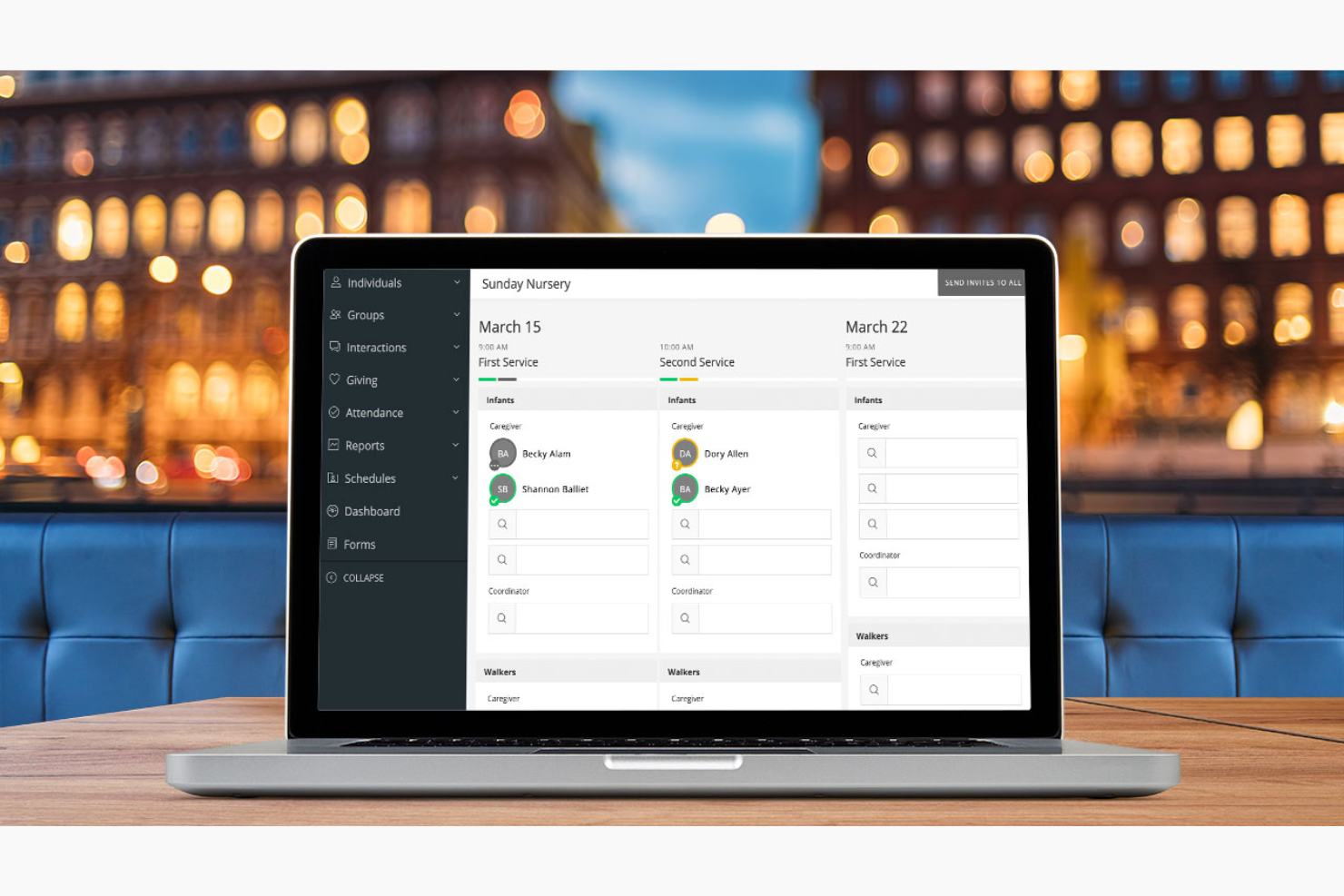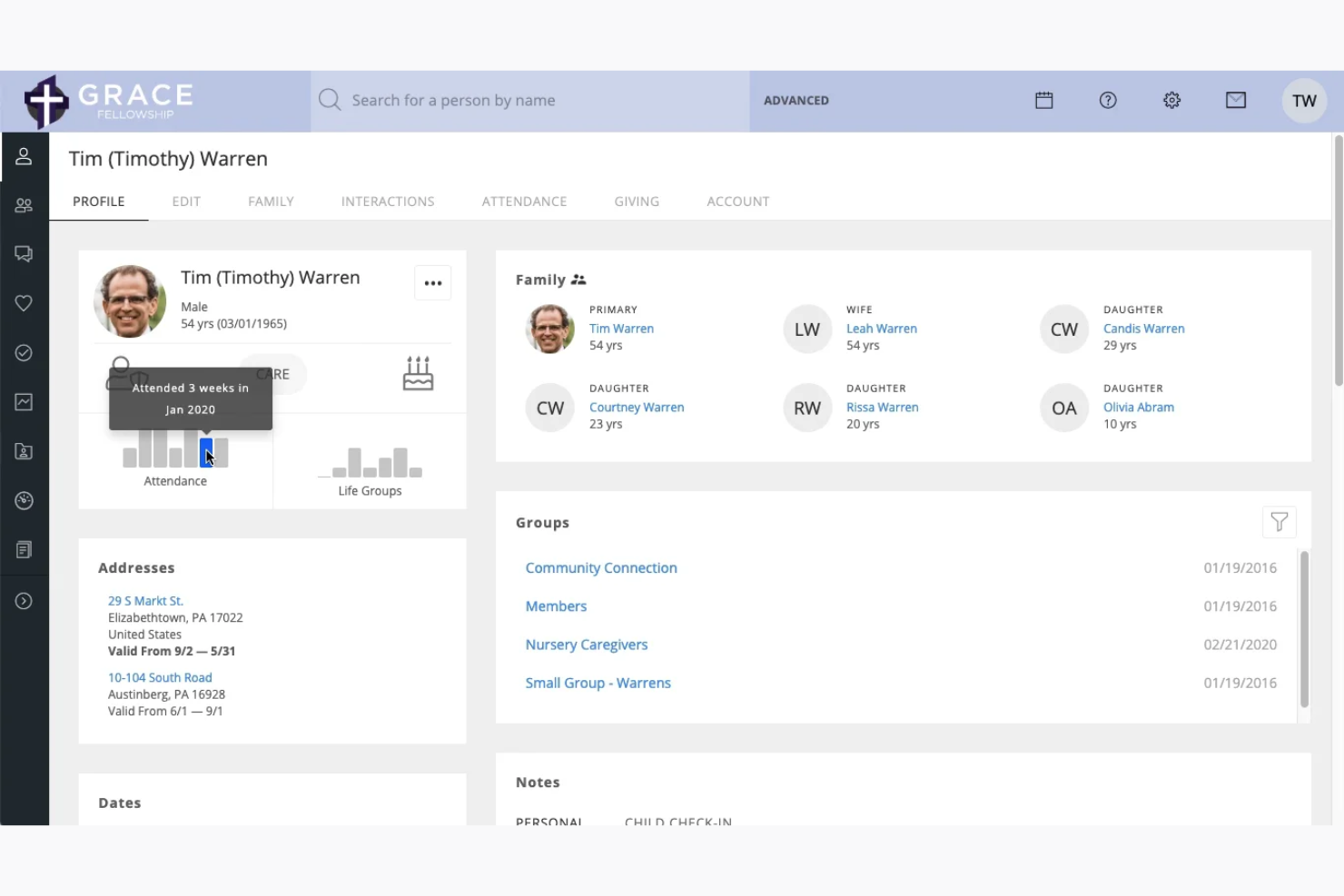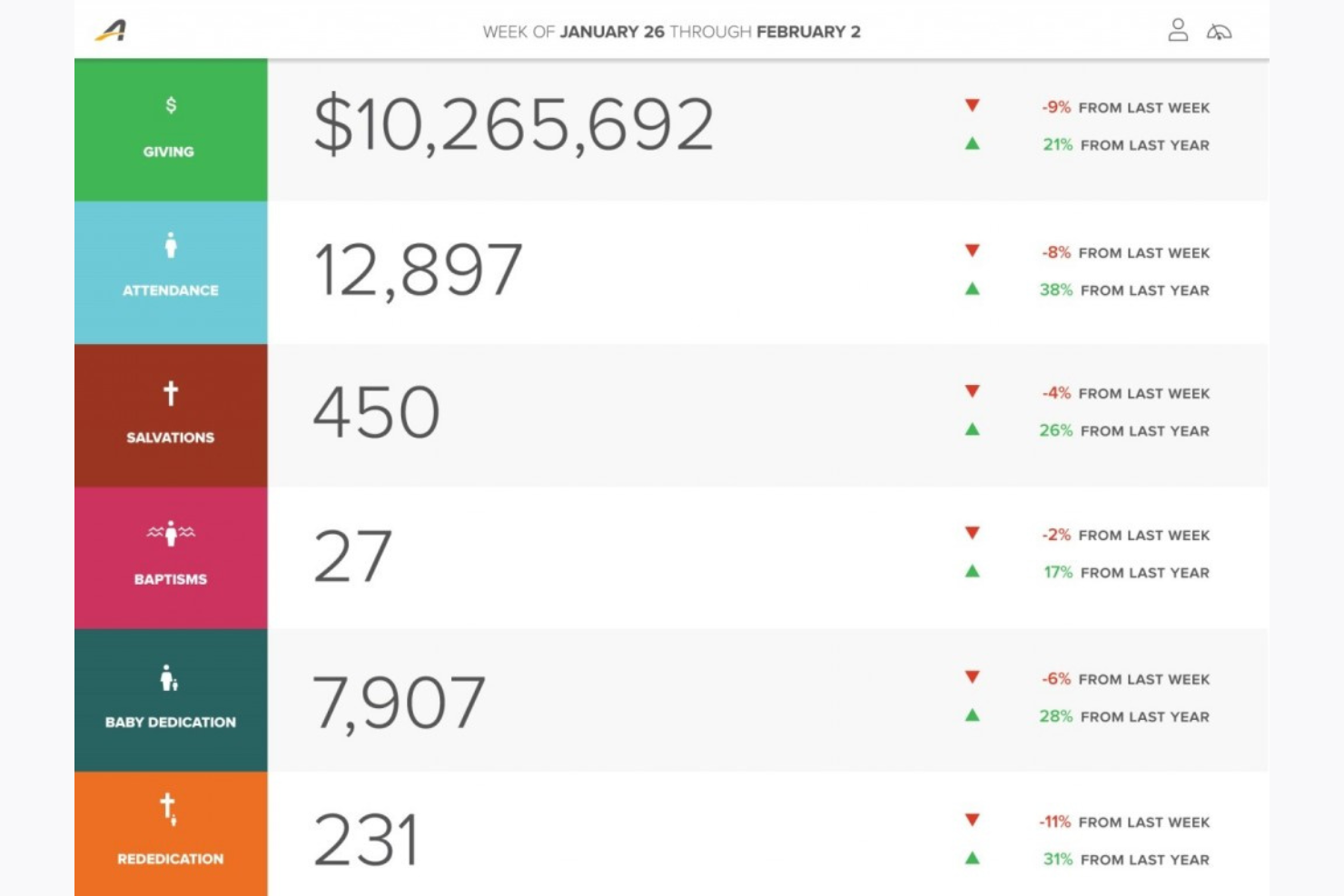FellowshipOne Review: Pros, Cons, Features & Pricing
FellowshipOne is a church management software that helps churches streamline their operations, from attendance tracking to volunteer scheduling. It best serves church leaders and administrative teams who manage large congregations, such as those in multi-campus churches or churches with diverse ministries. With FellowshipOne, you gain efficiency and organization, allowing you to focus more on your mission and less on the mundane.
In this article, we’ll cover FellowshipOne's features, pros and cons, best and worst use cases, and pricing. You'll find insights to align your church management needs with your leadership goals.
Fellowship One Evaluation Summary

- Pricing is available upon request
- 30-day free trial
Why Trust Our Software Reviews
Fellowship One Overview
In my opinion, FellowshipOne is a solid choice for church management, especially for large congregations needing robust organizational tools. While its core features and standout functionalities like volunteer scheduling are commendable, it can be a bit challenging to navigate for newcomers. It outperforms many competitors in customer support, providing timely assistance, but it may not offer the best value for smaller churches due to its pricing structure. FellowshipOne is best suited for churches with experienced administrative teams who can leverage its full potential.
pros
-
Their customer support is responsive and helpful when you need assistance.
-
The volunteer scheduling feature simplifies coordinating your team's efforts.
-
You can easily manage large congregations with its advanced organizational tools.
cons
-
Some users report that it can feel overwhelming due to its many features.
-
Your team might find the onboarding process a bit lengthy.
-
The interface can be tricky for newcomers to navigate.
How We Test & Score Tools
We’ve spent years building, refining, and improving our software testing and scoring system. The rubric is designed to capture the nuances of software selection and what makes a tool effective, focusing on critical aspects of the decision-making process.
Below, you can see exactly how our testing and scoring works across seven criteria. It allows us to provide an unbiased evaluation of the software based on core functionality, standout features, ease of use, onboarding, customer support, integrations, customer reviews, and value for money.
Core Functionality (25% of final scoring)
The starting point of our evaluation is always the core functionality of the tool. Does it have the basic features and functions that a user would expect to see? Are any of those core features locked to higher-tiered pricing plans? At its core, we expect a tool to stand up against the baseline capabilities of its competitors.
Standout Features (25% of final scoring)
Next, we evaluate uncommon standout features that go above and beyond the core functionality typically found in tools of its kind. A high score reflects specialized or unique features that make the product faster, more efficient, or offer additional value to the user.
We also evaluate how easy it is to integrate with other tools typically found in the tech stack to expand the functionality and utility of the software. Tools offering plentiful native integrations, 3rd party connections, and API access to build custom integrations score best.
Ease of Use (10% of final scoring)
We consider how quick and easy it is to execute the tasks defined in the core functionality using the tool. High scoring software is well designed, intuitive to use, offers mobile apps, provides templates, and makes relatively complex tasks seem simple.
Onboarding (10% of final scoring)
We know how important rapid team adoption is for a new platform, so we evaluate how easy it is to learn and use a tool with minimal training. We evaluate how quickly a team member can get set up and start using the tool with no experience. High scoring solutions indicate little or no support is required.
Customer Support (10% of final scoring)
We review how quick and easy it is to get unstuck and find help by phone, live chat, or knowledge base. Tools and companies that provide real-time support score best, while chatbots score worst.
Customer Reviews (10% of final scoring)
Beyond our own testing and evaluation, we consider the net promoter score from current and past customers. We review their likelihood, given the option, to choose the tool again for the core functionality. A high scoring software reflects a high net promoter score from current or past customers.
Value for Money (10% of final scoring)
Lastly, in consideration of all the other criteria, we review the average price of entry level plans against the core features and consider the value of the other evaluation criteria. Software that delivers more, for less, will score higher.
Core Features
Member Management:
You can track and manage detailed member profiles, including contact information and activity history. This helps you keep your congregation organized and engaged.
Attendance Tracking:
Easily record and monitor attendance for services and events, providing insights into participation trends. This data supports your planning and outreach efforts.
Volunteer Scheduling:
Coordinate and schedule volunteers efficiently, ensuring your events and services run smoothly. It simplifies your team's workload by automating assignments.
Donation Management:
Track and manage donations with comprehensive reporting, helping you manage your church's finances transparently. This builds trust with your congregation.
Communication Tools:
Send targeted messages to your congregation via email or text, keeping everyone informed and connected. This enhances your community engagement and outreach.

Ease of Use
FellowshipOne offers a range of features that can initially seem overwhelming, especially for those new to church management software. While its comprehensive tools provide value, the interface may require some time for your team to learn and navigate. Users often find the setup and customization options a bit complex, but once you're familiar, it becomes a powerful tool. If you're tech-savvy, you'll likely appreciate the depth of functionalities it offers.

Fellowship One Specs
- API
- External Integrations
Alternatives to Fellowship One
Fellowship One FAQs
How does FellowshipOne handle data security and compliance?
Can FellowshipOne support multi-campus churches?
What kind of training resources are available for new users?
How does FellowshipOne facilitate volunteer management?
Is FellowshipOne customizable to fit our church's specific needs?
What support channels are available if we encounter issues?
How can FellowshipOne improve our communication with members?
Does FellowshipOne offer mobile access for on-the-go management?
What's Next?
Subscribe to our newsletter to get the latest resources, best practices, and insights on managing churches from expert pastors and church leaders.








